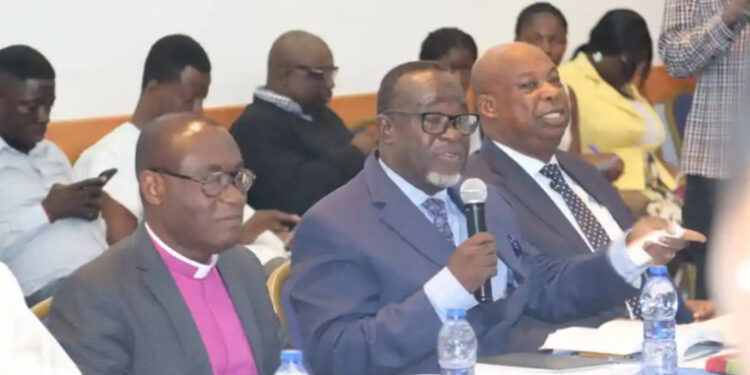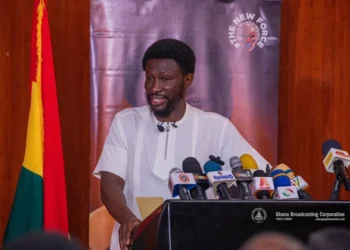The Election Management Committee (EMC) of the Judiciary has urged Chief Justice Gertrude Sackey Torkornoo to expedite the ‘E-Justice’ initiative so that electoral cases can be resolved quickly.
It proposed, however, that in the interim, parties to a suit be served using digital means such as email, express mail services (EMS), and WhatsApp, as not all courts have been digitised.
According to the Committee, most Ghanaians use ‘WhatsApp’, therefore, it would be easy to serve people through that platform.
‘We all know that it is not all the courts that have computers and internet services, but WhatsApp is quite extensive; almost everybody is on WhatsApp.
“So, we are proposing that the Chief Justice should hasten the computerisation drive so that we can have computers for every court, and we can serve people through it,” Justice Paul Baffoe Bonney, Supreme Court judge and Chairman of the EMC said.
He made the suggestion during a stakeholder engagement on ‘Building Consensus of Parliamentary Elections Petition Adjudication’ in Accra on Wednesday.
The engagement was organized by the National Peace Council.
It sought to examine how parliamentary election petitions, which flood the courts following each general election, can be resolved promptly so that Members of Parliament (MPs) can carry out their obligations after being sworn in.
According to Justice Baffoe Bonney, avoidance of services is one of the factors that causes delays in the timely adjudication of parliamentary election petitions.
He said the existing law required the court to personally serve the person (respondent) against whom an action has been filed.
And, unless a respondent is physically served, he may argue that he is unaware of any judicial action against him.
Justice Baffoe Bonney said some respondents, especially politicians, evade services, which delayed the adjudication process.
Therefore, the courts should be allowed to serve respondents through electronic means to expedite the process.
He urged the Electoral Commission (EC) to ensure that the data it collects from parliamentary candidates includes electronic addresses and contact information so that the courts can use it.
“We are proposing that once they are filing their documents before the EC, they are expected to divulge their electronic addresses. So if anybody issues a petition, the process does not need to be served on the person personally…The process could then be served either Email, EMS, or WhatsApp or whatever so that they cannot evade services,” he said.










Discussion about this post